Premium Only Content
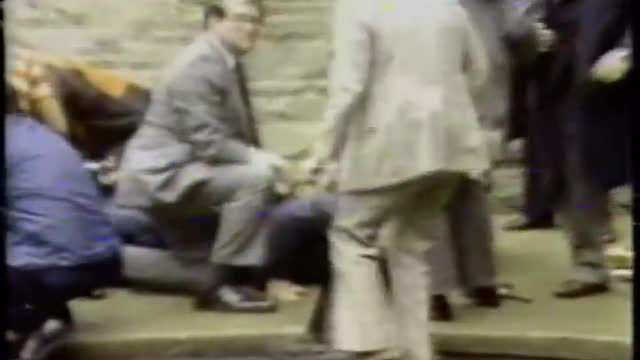
President Ronald Reagan assassination attempt - First ABC News Bulletin - March 30, 1981
March 30, 1981, President of the United States Ronald Reagan was shot and wounded by John Hinckley Jr. in Washington, D.C.
Reagan was seriously wounded by a revolver bullet that ricocheted off the side of the presidential limousine and hit him in the left underarm, breaking a rib, puncturing a lung, and causing serious internal bleeding. He was close to death upon arrival at George Washington University Hospital but was stabilized in the emergency room; he then underwent emergency exploratory surgery. He recovered and was released from the hospital on April 11. No formal invocation of sections 3 or 4 of the Constitution's 25th amendment (concerning the vice president assuming the president's powers and duties) took place, though Secretary of State Alexander Haig stated that he was "in control here" at the White House until Vice President George H. W. Bush returned to Washington from Fort Worth, Texas. Haig was fourth in the line of succession after Bush, Speaker of the House Tip O'Neill, and president pro tempore of the Senate Strom Thurmond.
Ronald Wilson Reagan (/ˈreɪɡən/ RAY-gən; February 6, 1911 – June 5, 2004) was an American politician and actor who served as the 40th president of the United States from 1981 to 1989. A member of the Republican Party, his presidency constituted the Reagan era, and he is considered one of the most prominent conservative figures in American history.
On March 30, 1981, President of the United States Ronald Reagan was shot and wounded by John Hinckley Jr. in Washington, D.C., as he was returning to his limousine after a speaking engagement at the Washington Hilton. Hinckley believed the attack would impress actress Jodie Foster, with whom he had developed an erotomanic obsession.
2008, British historian M. J. Heale summarized that scholars had reached a broad consensus in which "Ronald Reagan rehabilitated conservatism, turned the country to the right, practiced a 'pragmatic conservatism' that balanced ideology with the constraints of government, revived faith in the presidency and American self-respect, and contributed to critically ending the Cold War", which ended with the dissolution of the Soviet Union in 1991. Many conservative and liberal scholars have agreed that Ronald Reagan has been the most influential president since Roosevelt, leaving his imprint on American politics, diplomacy, culture, and economics through his effective communication of his conservative agenda and pragmatic compromising. During the initial years of Ronald Reagan's post-presidency, historical rankings placed his presidency in the twenties. Throughout the 2000s and 2010s, his presidency was often placed in the top ten.
-
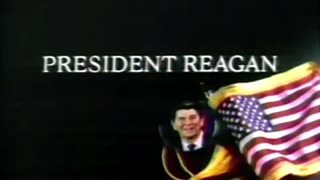 1:00
1:00
The 1980s
1 year agoPresidential ad: “It’s Morning Again in America” Ronald Reagan 1984
2901 -
 1:33:56
1:33:56
MattMorseTV
3 hours ago $23.17 earned🔴Exposing his PARTNER IN CRIME.🔴
56.4K194 -
 1:26:51
1:26:51
vivafrei
8 hours agoCharlie Kirk Assassination - When Peaceful Discussion Becomes Impossible - With Jose Vege
83K168 -
 2:04:12
2:04:12
Mally_Mouse
1 day ago🌶️ 🥵Spicy BITE Saturday!! 🥵🌶️- Let's Play: Supermarket Together
32.7K2 -
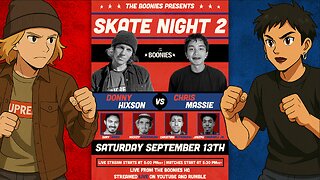 1:15:37
1:15:37
BooniesHQ
8 hours ago $6.63 earnedGame Of SKATE Donny Hixson Vs. Chris Massie: Boonies Skate Night 2
54.1K7 -
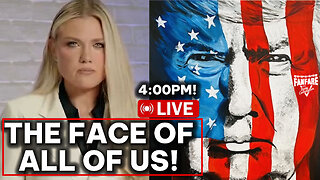 2:56:25
2:56:25
Barry Cunningham
9 hours agoTHE TAKING OF CHARLIE KIRK HAS IGNITED A FLAME! AND A BREAKING (BUT NOT SHOCKING) UPDATE!
104K114 -
 9:38
9:38
Exploring With Nug
12 hours ago $2.76 earnedSearching Florida Waters for a Missing Murder Victim’s Car | Alligator Encounter!
41.9K1 -
 2:05:59
2:05:59
SavageJayGatsby
1 day agoSpicy Bite Saturday | Let's Play: Supermarket Together
36.7K -
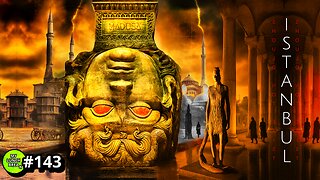 23:23
23:23
MYLUNCHBREAK CHANNEL PAGE
1 day agoIstanbul Should Not Exist - Pt 1
67.3K34 -
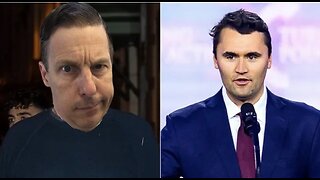 1:27:40
1:27:40
Jeff Ahern
9 hours ago $11.82 earnedThe Saturday Show With Jeff Ahern
104K39